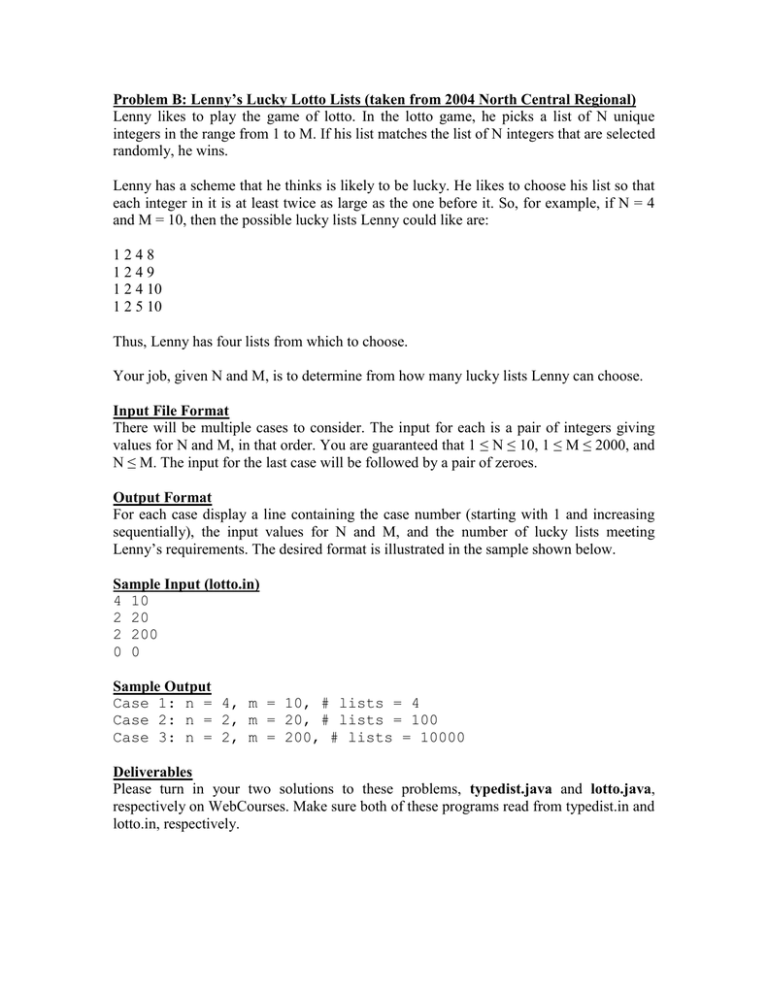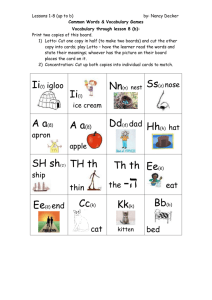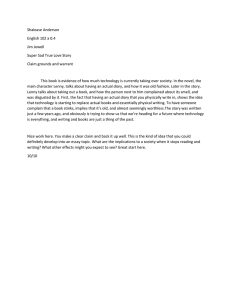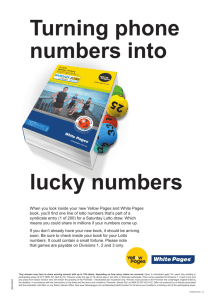Problem B: Lenny’s Lucky Lotto Lists (taken from 2004 North...
advertisement

Problem B: Lenny’s Lucky Lotto Lists (taken from 2004 North Central Regional) Lenny likes to play the game of lotto. In the lotto game, he picks a list of N unique integers in the range from 1 to M. If his list matches the list of N integers that are selected randomly, he wins. Lenny has a scheme that he thinks is likely to be lucky. He likes to choose his list so that each integer in it is at least twice as large as the one before it. So, for example, if N = 4 and M = 10, then the possible lucky lists Lenny could like are: 1248 1249 1 2 4 10 1 2 5 10 Thus, Lenny has four lists from which to choose. Your job, given N and M, is to determine from how many lucky lists Lenny can choose. Input File Format There will be multiple cases to consider. The input for each is a pair of integers giving values for N and M, in that order. You are guaranteed that 1 ≤ N ≤ 10, 1 ≤ M ≤ 2000, and N ≤ M. The input for the last case will be followed by a pair of zeroes. Output Format For each case display a line containing the case number (starting with 1 and increasing sequentially), the input values for N and M, and the number of lucky lists meeting Lenny’s requirements. The desired format is illustrated in the sample shown below. Sample Input (lotto.in) 4 10 2 20 2 200 0 0 Sample Output Case 1: n = 4, m = 10, # lists = 4 Case 2: n = 2, m = 20, # lists = 100 Case 3: n = 2, m = 200, # lists = 10000 Deliverables Please turn in your two solutions to these problems, typedist.java and lotto.java, respectively on WebCourses. Make sure both of these programs read from typedist.in and lotto.in, respectively.





